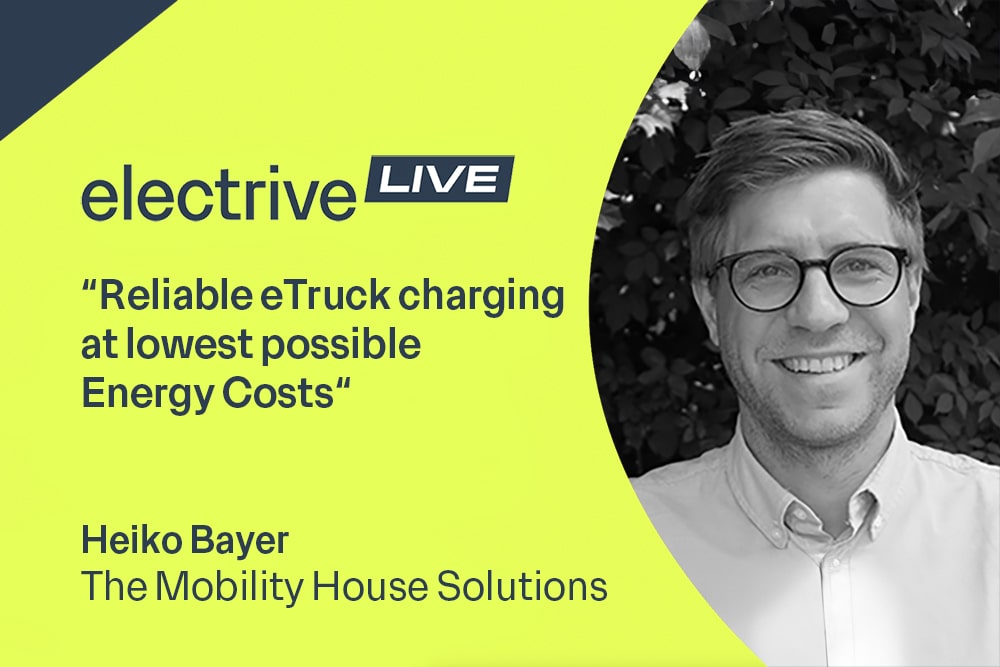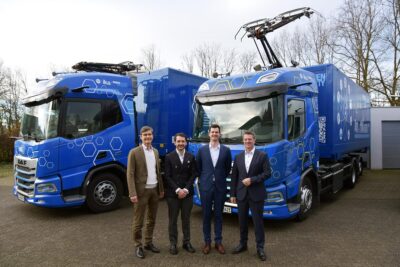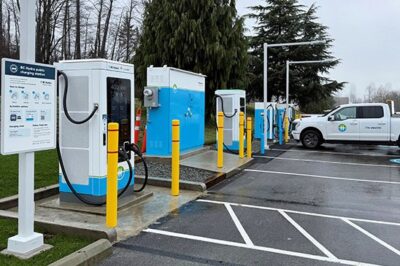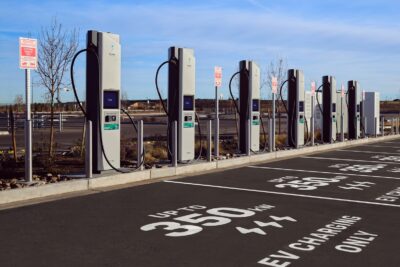“Reliable eTruck charging at lowest possible Energy Costs” – Heiko Bayer from The Mobility House Solutions
Electric trucks consume between 50 and 80 megawatt-hours annually per vehicle. For fleet operators, these figures translate into a substantial portion of their total cost of ownership (TCO). Bayer notes that reducing energy costs is pivotal for the economic viability of fleet electrification.
The Mobility House has developed ChargePilot, a charging and energy management system that helps customers optimise energy use. “By integrating dynamic load management, peak shaving, and renewables, we cut grid connection costs by 30–80%, depending on the use case,” Bayer explains.
Beyond reducing connection costs, ChargePilot’s dynamic tariff optimisation can save an additional 20–25% on energy costs by aligning charging schedules with lower market prices. “We follow price signals in real-time to ensure savings for the entire fleet,” he adds.
Reliable Solutions for Complex Operations
The shift to electric fleets brings operational complexities, including grid limitations, integrating renewable energy, and rapid technological evolution. To address these, The Mobility House adopts a hardware-neutral approach, enabling compatibility with multiple manufacturers and allowing fleet operators flexibility in their future choices.
Bayer explains: “It’s important to choose systems that aren’t vendor-dependent. Market conditions change, and flexibility is key to staying competitive.”
Integration with existing fleet management systems is another critical factor. ChargePilot connects seamlessly to dispatching software, enabling operators to align vehicle schedules with energy needs, optimise charging, and ensure every truck is ready to meet its next duty.
Vehicle-to-Grid Potential
A standout feature of The Mobility House’s offering is vehicle grid integration. While bidirectional charging capabilities remain limited, unidirectional integration is already delivering substantial savings. “By commercialising aggregated battery flexibility in energy markets, we can reduce energy costs by up to 50%,” Bayer says.
This capability extends to advanced applications, such as Amsterdam’s public transport fleet. “We’ve managed 15 megawatts of charging power for electric buses in Amsterdam, ensuring cost savings through dynamic price optimisation while meeting 100% target state of charge,” he recounts.
Trust is at the heart of The Mobility House’s approach. “We ensure that vehicles are fully charged when needed. Once reliability is established, operators are more open to exploring advanced cost-saving measures,” Bayer states. The solutions provided by The Mobility House have already been deployed at 2,000 sites globally, with over 100 heavy-duty depots among them. The interest from the logistics sector continues to grow, as businesses recognise the value of smart charging in reducing operational costs and enhancing reliability.
While the uptake of electric trucks is still evolving, Bayer believes the era of smart charging is already here. “Smart charging is not just a theoretical concept—it’s a reality today,” he says.





0 Comments